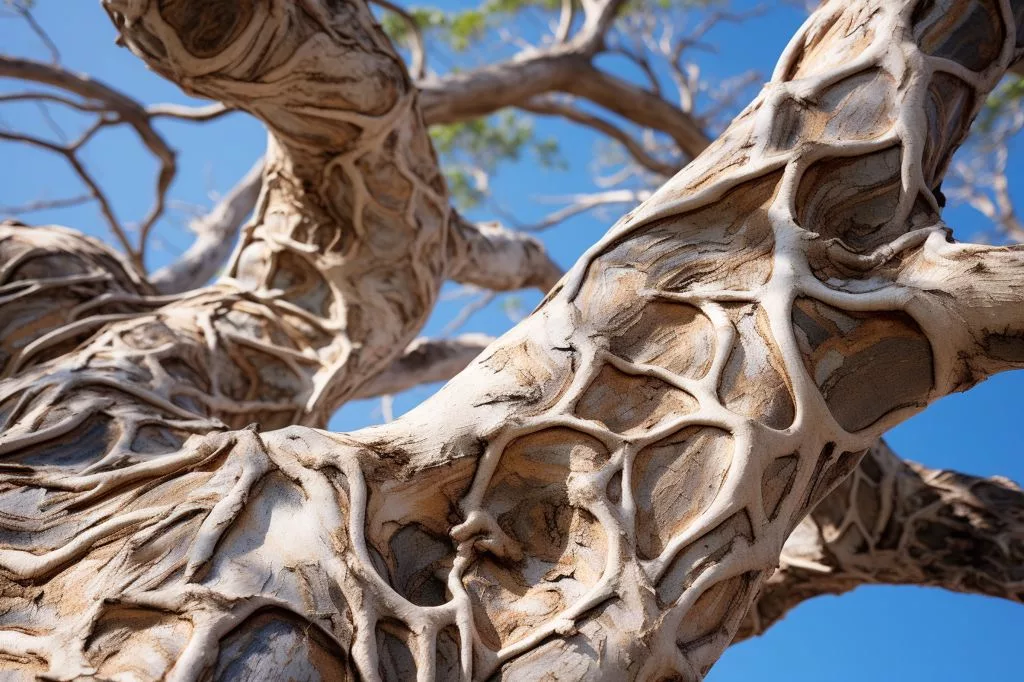In Cape Town, there are 13 Champion Trees that hold immense historical and ecological significance. Sadly, one of these giants, a 80-100 year old Turkish oak, fell in October due to factors such as rainfall and heart rot. This event marks the second loss of a Champion Tree in two years, emphasizing the need to protect these natural wonders under the National Forests Act of 1998. Despite the loss, the fallen oak will be repurposed to continue contributing to the beauty and sustainability of Arderne Gardens.
Situated in the core of Cape Town, a collection of extraordinary trees tower over the city, silently watching over its inhabitants as they have for many years. These living monuments, known as Champion Trees, hold an esteemed position in the history and ecology of South Africa. In October, the city grieved the loss of one of these giants, a Turkish oak (Quercus cerris) that had fallen in Arderne Gardens. This occurrence serves as a reminder of the precious and delicate nature of these natural marvels, which possess invaluable cultural, historical, and ecological importance.
Cape Town’s Majestic Champions
Currently, 13 Champion Trees are dispersed throughout the city, each earning their title based on characteristics such as size, age, beauty, cultural or historical significance, and potential for tourism. These trees are safeguarded under the National Forests Act of 1998, which forbids any harm or commercial use of the trees without proper licensing or exemption.
The Tragic End of the Turkish Oak
On the ill-fated morning of October 4th, the City’s Recreation and Parks Department was informed that the Turkish oak, one of these cherished Champion Trees, had fallen. The massive tree reportedly obstructed Claremont Main Road, temporarily stopping traffic, and causing damage to a curb and streetlight. Thankfully, no one was hurt in the incident.
A variety of factors may have led to the oak’s downfall, such as increased rainfall, powerful winds, previous storms, and a potential vulnerability to heart rot, a fungal infection that impacts the tree’s core. The Turkish oak, native to regions of Europe and Asia, stood at an impressive 25 meters tall, with a 16-meter canopy spread and a 1.2-meter diameter trunk. Although its exact planting date remains uncertain, the tree, estimated to be between 80 and 100 years old, most likely originated from the Arderne family.
Paying Tribute to the Fallen Giant
The demise of the Turkish oak is a solemn occurrence for Cape Town and its inhabitants, who acknowledge the immense worth of these Champion Trees. In a statement, Mayoral Committee Member for Community Services and Health Councillor Patricia van der Ross emphasized the significance of these trees in the city’s history and their invaluable function in the ecosystem. To honor the fallen oak, its wood will be repurposed and reused within Arderne Gardens, ensuring it continues to contribute to the garden’s splendor and sustainability.
A Recurring Loss
This event marks the second Champion Tree loss in two years, following the fall of a Cork Oak in 2021. With the loss of these two trees, Arderne Gardens now houses four remaining notable trees: the Moreton Bay Fig, Norfolk Island Pine, Aleppo Pine, and Queensland Kauri.
Safeguarding the Legacy
The protection of Champion Trees under the National Forests Act of 1998 serves as a powerful testament to their importance, both culturally and ecologically. Under the act, no individual may cut, disturb, damage, or destroy any protected tree, nor obtain or dispose of any forest product derived from a protected tree, without proper authorization.
The loss of the Turkish oak highlights the need to preserve and treasure Cape Town’s Champion Trees, as they stand as living testaments to the city’s rich history and natural heritage. Their remarkable presence serves as a beacon for future generations, inspiring awe and respect for the natural world and its intricate, invaluable connections to our own human story.
How many Champion Trees are there in Cape Town?
Currently, there are 13 Champion Trees dispersed throughout Cape Town.
What are the criteria for a tree to be classified as a Champion Tree in Cape Town?
A tree can be classified as a Champion Tree in Cape Town based on characteristics such as size, age, beauty, cultural or historical significance, and potential for tourism.
What is the National Forests Act of 1998?
The National Forests Act of 1998 is a law that protects Champion Trees in Cape Town. The act forbids any harm or commercial use of the trees without proper licensing or exemption.
Why did the Turkish oak fall?
The Turkish oak may have fallen due to factors such as increased rainfall, powerful winds, previous storms, and a potential vulnerability to heart rot, a fungal infection that impacts the tree’s core.
How old was the fallen Turkish oak?
The Turkish oak was estimated to be between 80 and 100 years old.
What will happen to the fallen oak?
The wood from the fallen oak will be repurposed and reused within Arderne Gardens to contribute to the garden’s splendor and sustainability.
How many Champion Trees has Cape Town lost in the past two years?
Cape Town has lost two Champion Trees in the past two years. The Turkish oak in 2022 and a Cork Oak in 2021.
How are Champion Trees protected under the National Forests Act of 1998?
Under the National Forests Act of 1998, no individual may cut, disturb, damage, or destroy any protected tree, nor obtain or dispose of any forest product derived from a protected tree, without proper authorization.








